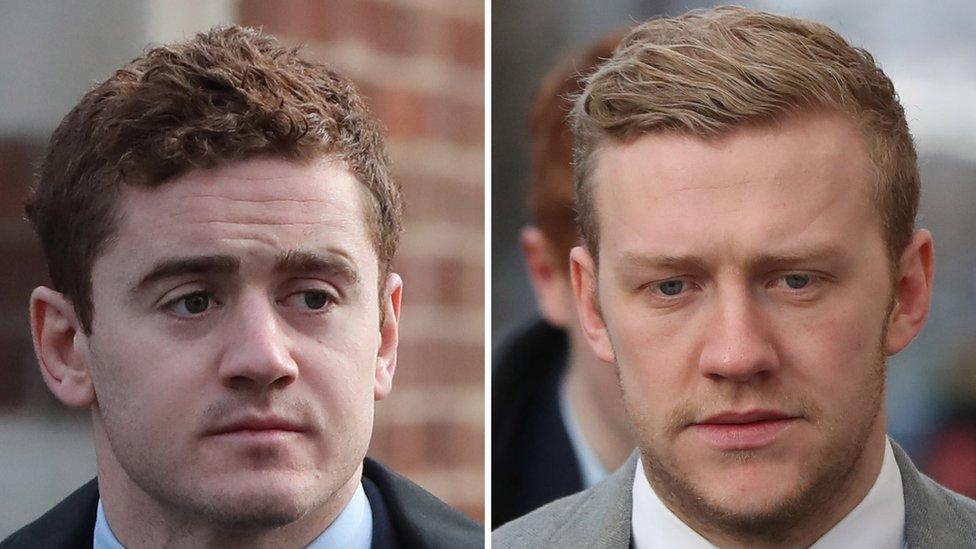Rugby rape trial: Is this NI's #MeToo moment?
- Published
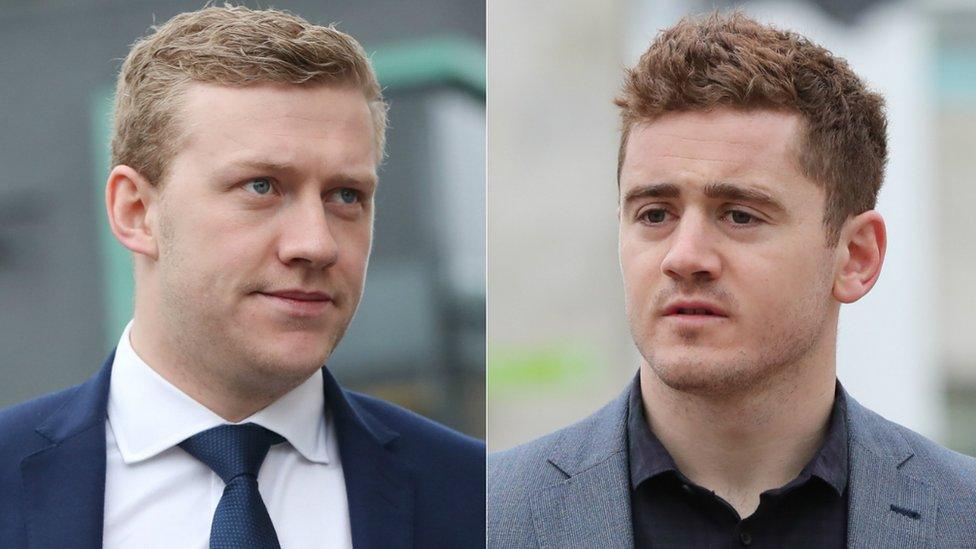
Stuart Olding (left) and Paddy Jackson were cleared of rape charges after a nine-week trial in Belfast
"From Hollywood to Belfast, #MeToo sparked a women-led movement against sexual harassment and assault."
These were the words on a Facebook post promoting a discussion earlier this week, in the wake of a high-profile rugby rape trial in Northern Ireland.
Ireland and Ulster Rugby players Paddy Jackson and Stuart Olding were both acquitted of all charges, but the conversation around the trial shows no signs of abating.
The wider issues raised by the case, and in particular the players' message exchanges - containing explicit sexual terms about women - have prompted intense debate.
Some say it is indicative of a misogynistic culture, but another strand of opinion points to a generational shift in attitudes - prompted, in part, by social media.
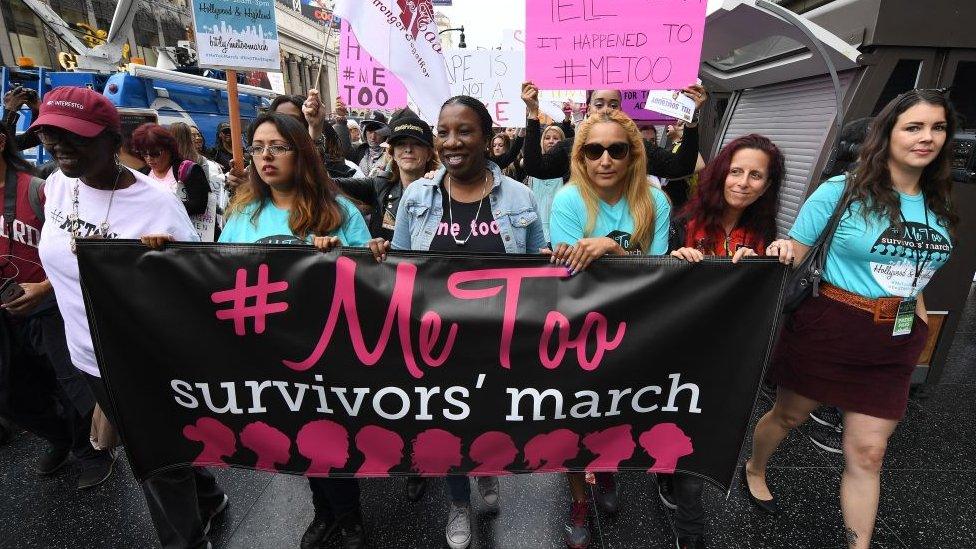
Women march in a #MeToo protest in California
One of the debates alludes to the viral #MeToo movement, that sprang up in America in the wake of allegations of sexual misconduct against former Hollywood producer Harvey Weinstein.
Women and men from all over the globe who claim to have been sexually harassed have shared their stories across social media using #MeToo,
Fiona Ferguson from People Before Profit, the group that organised the panel discussion in Belfast, said it was clear people want a similar #MeToo movement in Northern Ireland.
Ms Ferguson pointed to the thousands of people who attended protests in Dublin, Belfast and beyond after the trial finished.
But she said those protests "tapped into an anger" that went beyond the trial.
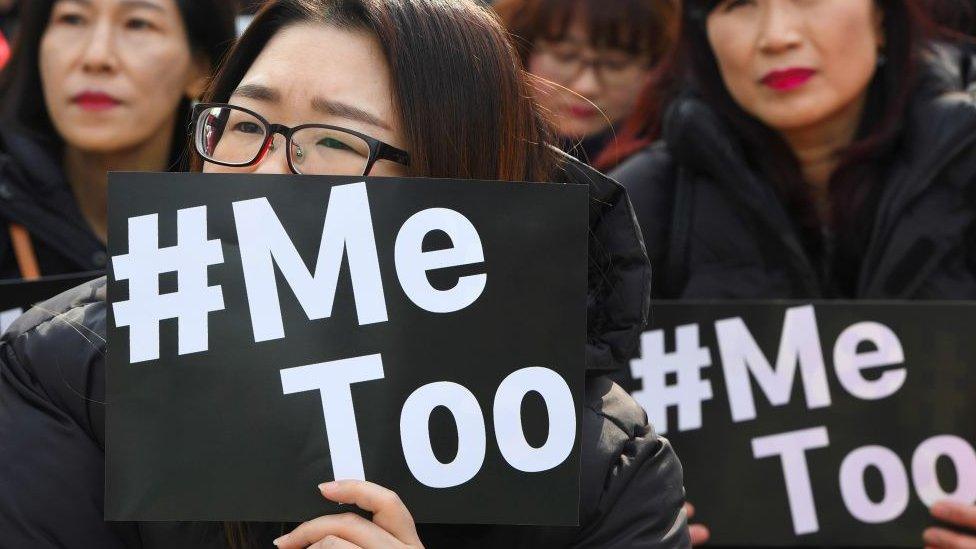
The #MeToo movement has gone viral - pictured are South Korean demonstrators during a rally to mark International Women's Day in Seoul in March
"The anger is something that has built up over a long period of time. It's the way that women are treated by society, not just about the trial, but other issues like the abortion laws in the republic. The case touched a wide layer of people.
"It was one case, but it lit a spark."
'Real fans standing up for Ulster men'
Last week, a crowd-funded advertisement was taken out in a Belfast newspaper calling for Mr Jackson and Mr Olding to be dropped by Ulster and Ireland.
They described the Whatsapp messages that emerged during the trial as "reprehensible". Mr Jackson later apologised for the messages.
However, a separate advert was published days later, calling on Ulster and Irish rugby to reinstate "innocent men" to playing duties.
That advert was signed by "real fans standing up for the Ulster men".
The former Ulster and Ireland rugby captain, Willie John McBride, believes that Mr Jackson and Mr Olding should be allowed to play for their province and country again.
"At the end of the day, they were not guilty", said Mr McBride, who is the president of the Ulster Rugby Supporters Club.
"It's time these guys were back, and I hope that the Ulster authorities and the Irish authorities allow these guys to do what they do best - and that's play rugby."
Changes in law
But the debate has become wider than whether the men will play again, with people - many of them on social media - calling for changes in the law as well as compulsory sex education, that among other issues, deals with the issue of consent.
On Friday night, a protest was held outside Kingspan stadium in Belfast, the home of Ulster rugby.
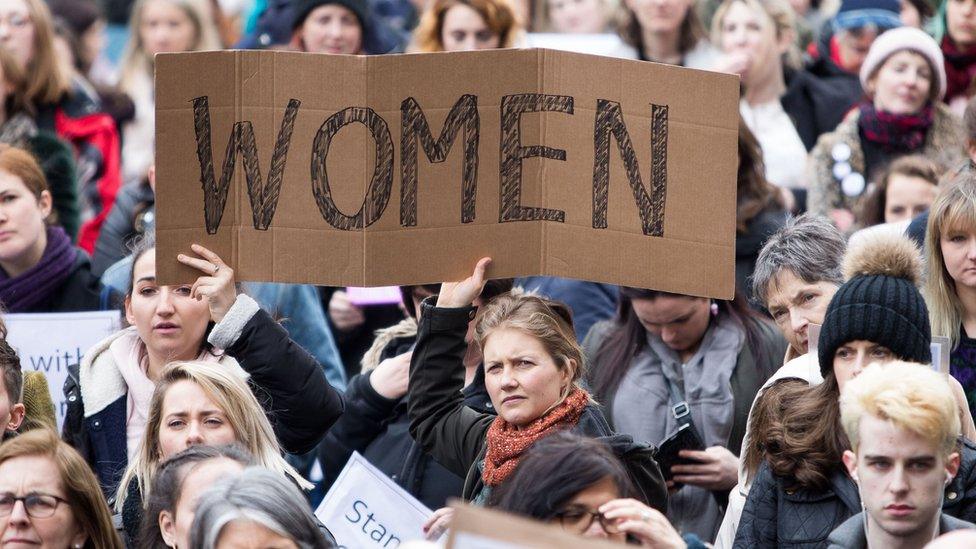
People take part in a protest in Dublin after two Ireland rugby players were acquitted last month
Kellie Turtle, one of the organisers and co-founder of Belfast Feminist Network, said Ulster Rugby needed to take steps to stamp out "misogyny and sexism".
"We are saying to Ulster Rugby - you have to take responsibility for this, take drastic action to change the culture that's allowed these attitudes to fester".
She claimed there would not have been such a large turnout outside the court on the day of the verdict had it not been for the #MeToo movement, but acknowledges that it won't change through rallies alone.
"It is not about the result of the trial, but the long, difficult process, the intense media coverage and the impact on the woman," she said.
One of Ulster Rugby's key sponsors, Bank of Ireland, has already said it was "highly concerned" about issues arising out of the court case, pointing to "the serious behaviour and conduct issues" that had emerged.
But what can change?
Writer and broadcaster Finola Meredith believes education is the way forward - pointing to what she calls "blatantly misogynist, revolting, contemptible" Whatsapp messages revealed during the trial.
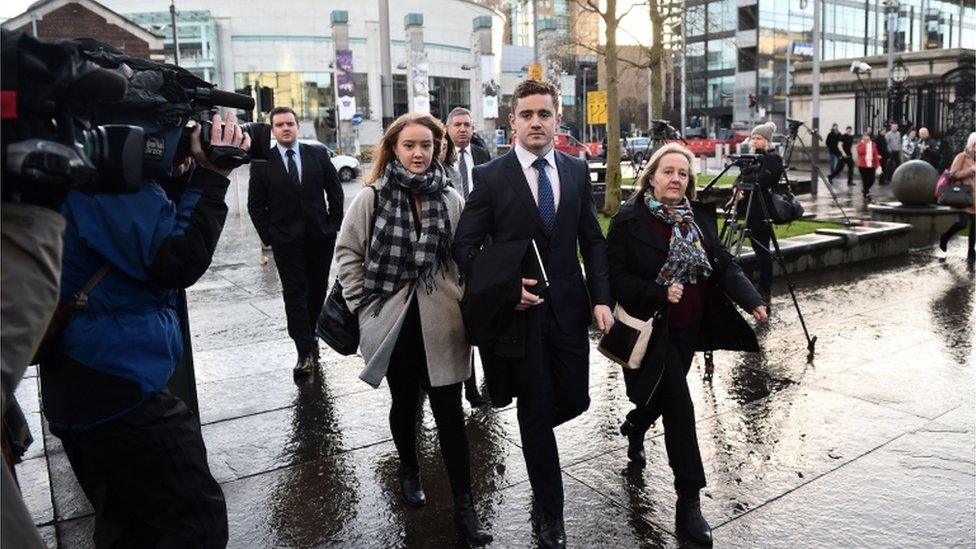
The case involving Paddy Jackson, centre, attracted huge media attention over nine weeks
"This is about our country, this is about who we want representing our country in this particular sports team," she told BBC Radio Five Live.
"Paddy Jackson and Stuart Olding, perhaps if they were going back to another job, we would say 'yes, they've been acquitted, as they have, and they should just go back to their job'. But this is not just any job. They're ambassadors, they're role models and, in that context, an individual's conduct really matters.
"There's a huge disquiet among a lot of people, that we don't want to just brush this away as though it doesn't matter and return the players to the team. There has to be some consequences for what we heard at the trial."
'There needs to be action'
An internal review of the players' conduct by the IRFU (Irish Rugby Football Union) is currently under way and both players are suspended until that review is completed.
However, Jonathan Bill, chairman of the Ulster Supporters Club, claimed the "vast majority of Ulster rugby fans" wants the players returned to the pitch.
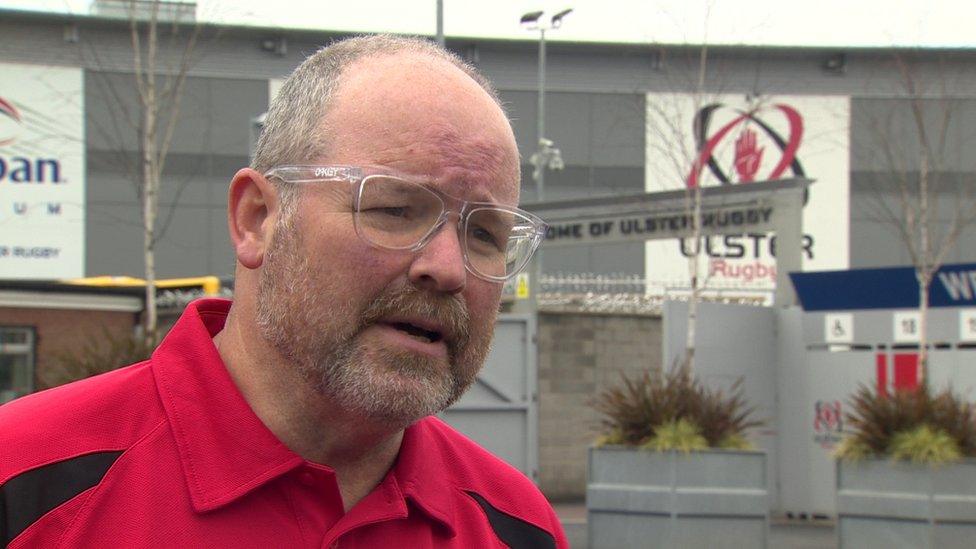
Jonathan Bill claims the "vast majority of Ulster rugby fans" wants the players returned to the field
"In reinstating the players, absolutely it should not be as if nothing has happened. There should be measures to ensure that there's some sort of mutual respect programme or something else put in place," he said.
During a BBC interview he was asked if it would damage Ulster Rugby if they returned.
"It don't know whether it tarnishes Ulster Rugby," he said.
"It puts Ulster rugby in the spotlight but, frankly, Ulster Rugby has been in the spotlight over the last number of weeks in a rather unpleasant sort of a way.
"There needs to be action. I just think banning them from playing for Ulster would be disproportionate.
"This has been a very unpleasant episode all round. There are no winners."
- Published11 April 2018
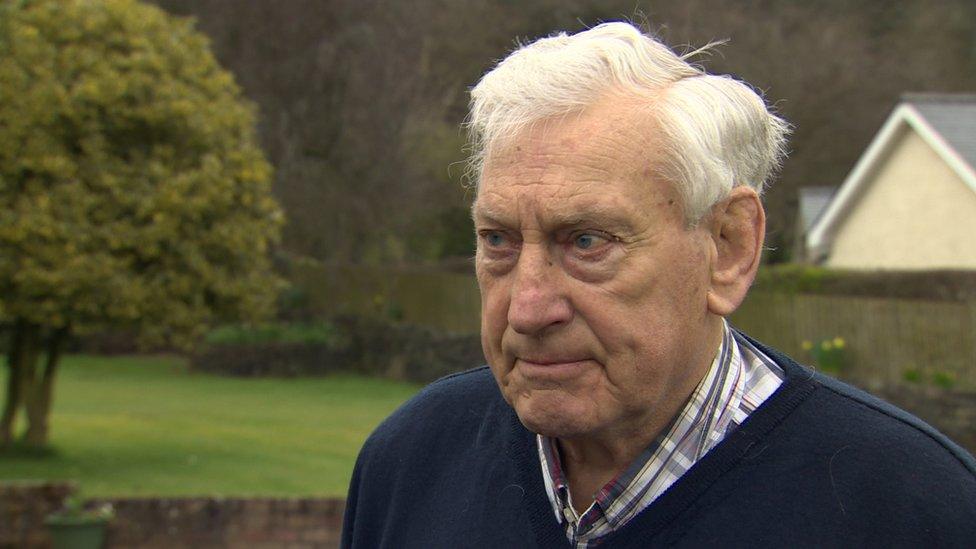
- Published6 April 2018
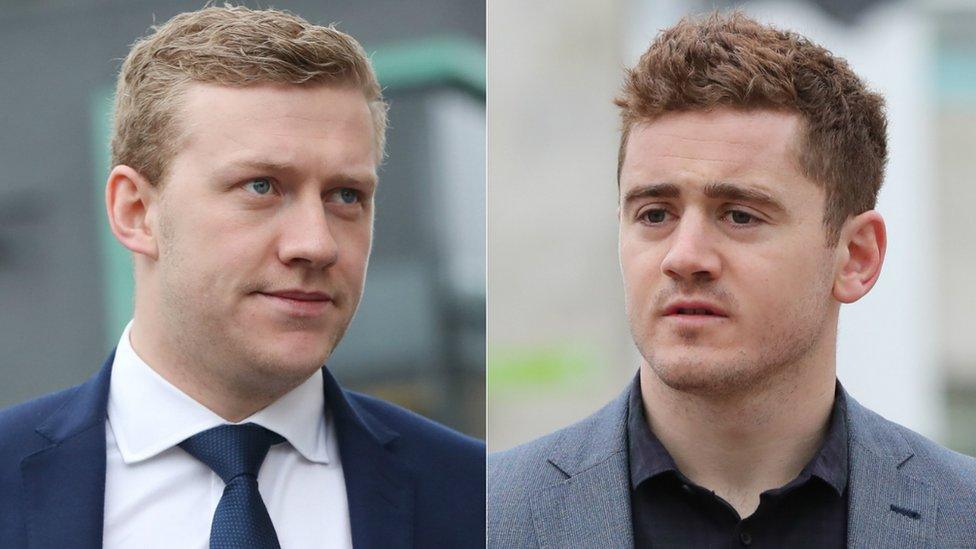
- Published28 March 2018
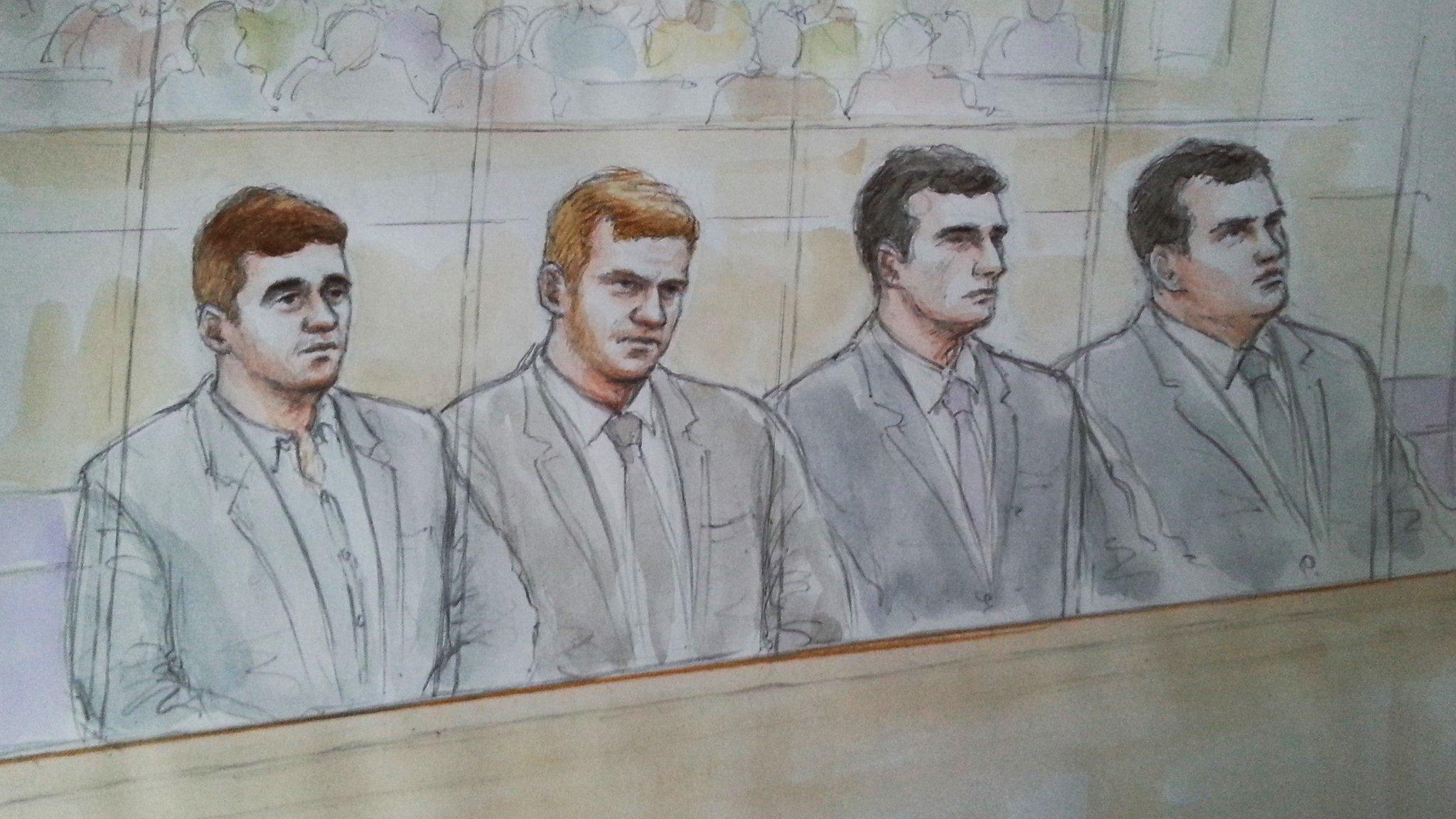
- Published6 April 2018
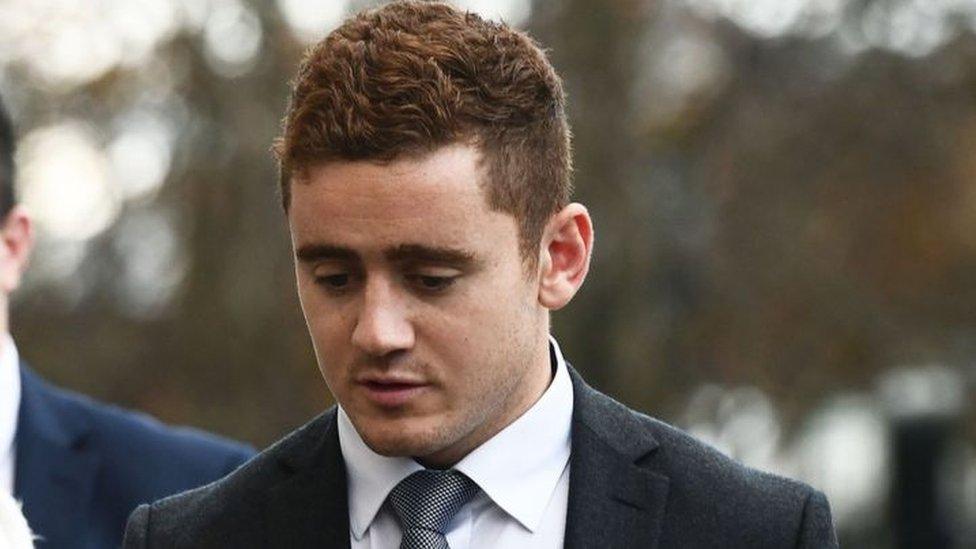
- Published29 March 2018
